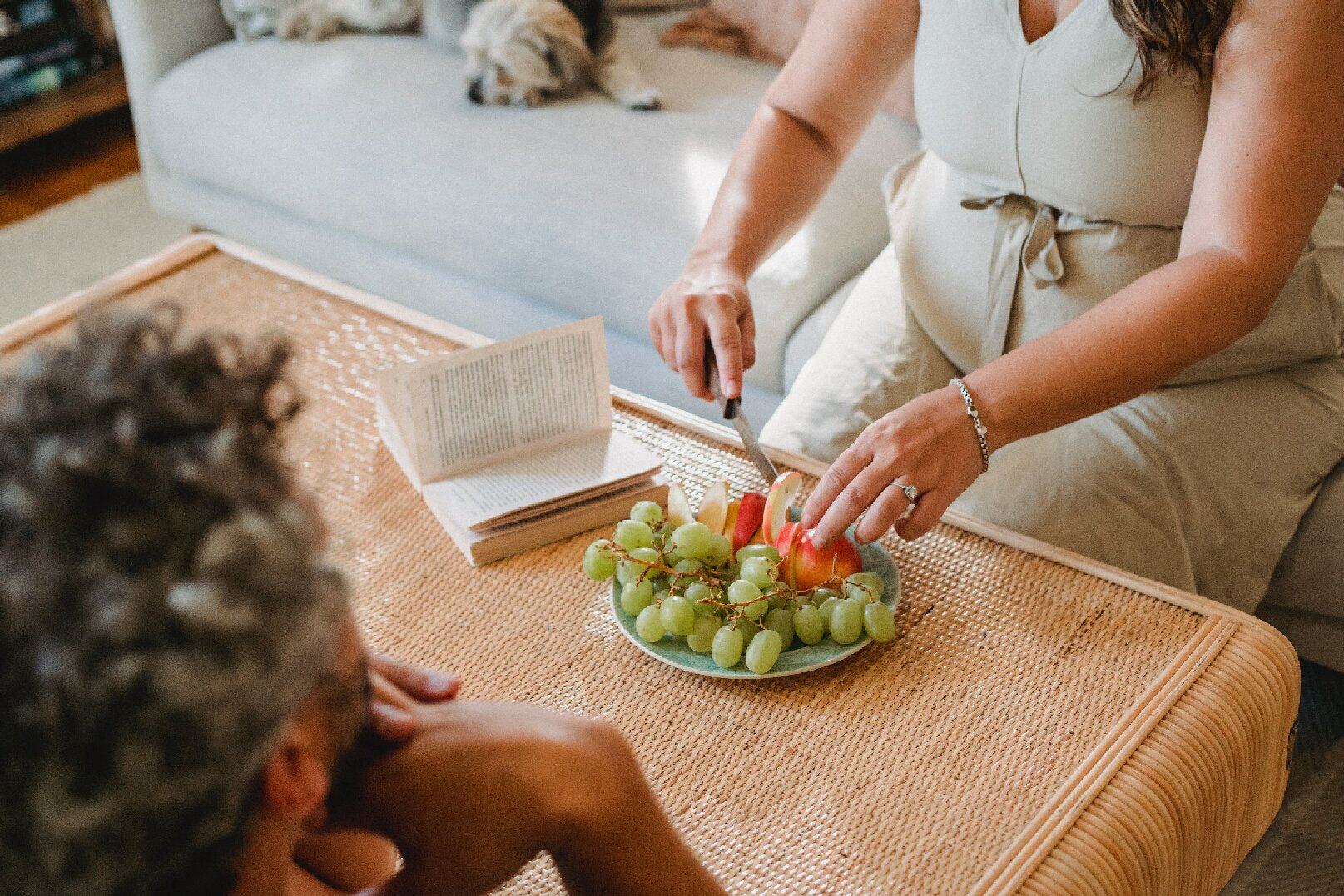Home
Pregnancy & Breastfeeding Tips for New Moms: Preconception, Pumping & Parenting Support
What Diet Is Best for Breastfeeding Moms?

What Diet Is Best for Breastfeeding Moms?
If you decide to breastfeed your child, you already know that the way you eat is important. Without the right nutrition, the milk you produce won’t help your baby grow and thrive; fortunately, finding the best breastfeeding diet is much easier than you think. Once you learn a few simple tips, planning your meals is a piece of cake and it’s easy to learn those tips with a little research.
The first thing that you should know when you’re planning to nurse your baby is that you don’t need any complicated recipes or special tools or ingredients. In fact, if you concentrate on eating a nutritious and well-balanced diet, your baby will get what they need to grow and thrive. Let’s take a look at a few more things in detail.
Should I Consume Extra Calories While Breastfeeding?
Extra calories are needed when you’re breastfeeding a baby. Why? Because it takes roughly 500 calories per day just to make the milk, which means that you’ll need at least that many calories added to your diet every day to keep up with the demands of breastfeeding.
If you ever feel dizzy or lightheaded, especially after a feeding, it is likely that you’re not consuming enough calories. You’ll need at least 400 to 500 extra calories per day to accommodate your breastfeeding needs.
The thing is that these calories need to come from healthy foods, which should include:
- Dairy products such as eggs and yogurt
- Lean meats such as chicken
- Fruits and vegetables of all types
- Whole grains such as oatmeal and brown rice
- Beans and lentils
- Nuts and seeds, especially walnuts and almonds
In addition to the right foods, you should drink six to eight cups of liquid every day, too. This should include water, sugar-free juices, and milk. Some women get a glass of water or juice right before they feed the baby, which is a good way to remember to drink enough liquids. As a general rule, the lighter your urine is, the closer you are to drinking the right amount of liquids. Dark urine means that you’re not drinking enough liquids.
Are There Things to Avoid?
A good diet for breastfeeding moms also excludes certain foods because remember, everything you consume, the baby will consume through your breast milk.
The three main foods you’ll want to limit or avoid altogether include:
- Caffeine is a stimulant and can make the baby edgy and irritated. If you must have your coffee or soft drink every day, limit it to two to three cups per day and no more.
- No amount of alcohol is considered safe for a nursing infant. If you’re going to drink a small amount of alcohol, you can pump some milk before you drink and save the pumped milk for another feeding.
- Fish that contains mercury. Mercury can damage the development of a baby’s system, so switch to fish that have little to no mercury in them, including salmon, catfish, canned light tuna, and shrimp.
What About Supplements?
This is something that you’ll need to consult with your doctor about since each breastfeeding mother is a little different. Some doctors may recommend that you take a basic over-the-counter vitamin and mineral supplement, while others will want you on a prescription or prenatal supplement. Still others may recommend only certain supplements, such as extra vitamin C or folic acid. Talk to your doctor about your diet and it should be simple for them to recommend what to do.
Keep in mind that just like when you’re pregnant, breastfeeding a baby means that they’ll get the vitamins they need first, and you’ll get whatever is “left over.” If you want both you and the baby to get the nutrients you need to thrive, a vitamin and mineral supplement might be needed.
Essentially, when you look for the perfect healthy diet for a breastfeeding mom, you’ll need to include vitamins and minerals that include protein, calcium, and iron. These are very important ingredients to keep your meal plan nutritious, which means that you’ll make the best breast milk in the end.
A Lot Easier Than It Seems
Healthy eating for breastfeeding is simple because your diet simply needs to be varied and healthy. There’s no need for you to buy expensive or rare foods because the basics should do. You can also occasionally eat sweets and fatty foods, but you should only do this occasionally. You can also add lactation cookies and other foods to ensure your diet is strong and healthy enough for you to produce what your baby needs to grow properly.
If there are any questions or concerns about your breastfeeding diet, you can go to either your doctor or a lactation specialist. You’ll want your breast milk to help your baby grow and get healthy, and it doesn’t have to be difficult or expensive. Try to eat from a variety of different food groups every day, get enough vitamins, and drink a lot of fluids, and you should make breast milk that suits all of your child’s needs for the first six months of life.
Conclusion
Breastfeeding successfully requires that you eat healthy, drink fluids, get enough rest, and avoid things such as alcohol and caffeine. Supplements also help, but since each breastfeeding mom is different, you should always consult with your doctor with any questions or problems you might be having. Breastfeeding should be a simple and very fulfilling experience for both you and your baby, and it’s very easy to do it right.
Share


